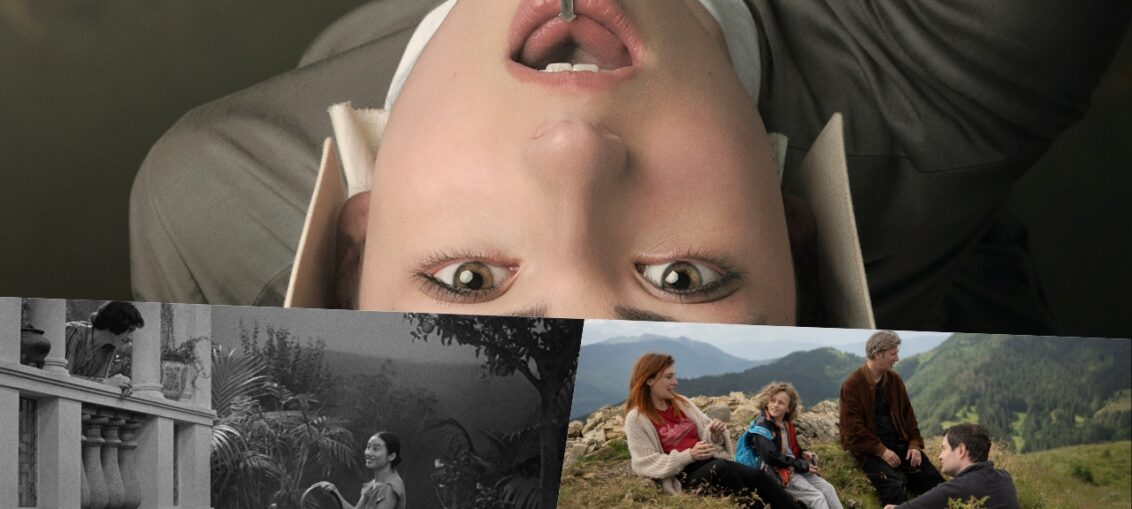
Miguel GOMES' imaginary journey to the Asian continent deserves an award
(from Cannes Luigi Noera and Maria Vittoria Battaglia with the kind collaboration of Vittorio De Agrò (RS) – the photos are published courtesy of the Cannes Film Festival)
COMPETITION
GRAND TOUR by Miguel GOMES
Synopsis: a British Empire official in Burma runs away on his wedding day, and is chased across Asia by the abandoned bride.
 Review: Edward Abbot, a young man who went to Burma at the time of colonization, awaits with apprehension the arrival of his fiancée whom he hasn't seen for 7 years! And the 4 January of 1918 and we are precisely in Burma at the time of colonization on an imaginary journey through Edward's journey.
Review: Edward Abbot, a young man who went to Burma at the time of colonization, awaits with apprehension the arrival of his fiancée whom he hasn't seen for 7 years! And the 4 January of 1918 and we are precisely in Burma at the time of colonization on an imaginary journey through Edward's journey.
Abbot decides to escape from the destiny of getting married to his betrothed and projects us into the historical period of the development of the hybridization of Southeast Asia with Western culture starting from the colonization of the early 1900s up to the present day with time leaps forward and back.
It is a festival film in B&N with sometimes using the format 4/3 which forces the viewer's gaze to the details shown in the background of the famous soundtrack used by Stanley Kubrick in 2001 A Space Odyssey and resumed in this hypnotic and creative Asian odyssey by Portuguese director Miguel Gomes.
The viewer may not know exactly where Gomes and his characters are headed, but the journey is carried out with wit, imagination and intelligence and provides transversal insights into the way we see the world and history.
Edward Abbot is running away from his future played by his girlfriend who chases him but who arrives a moment later in this wandering around the Asian continent.
 The female narrative voice makes use of the idiom of those fascinating and unexplored places in a festival film which at times takes on the characteristics of a theatrical piece thanks also to the use of B&N. In this respect it is told from a variety of Asian points of view, by voice-overs in the languages of each location, and Gomes refuses to provide subtitles for the Chinese dialogue, Vietnamese, Japanese, inverting the rules of colonial narrative in which the Western ear and eye have access to all meanings.
The female narrative voice makes use of the idiom of those fascinating and unexplored places in a festival film which at times takes on the characteristics of a theatrical piece thanks also to the use of B&N. In this respect it is told from a variety of Asian points of view, by voice-overs in the languages of each location, and Gomes refuses to provide subtitles for the Chinese dialogue, Vietnamese, Japanese, inverting the rules of colonial narrative in which the Western ear and eye have access to all meanings.
The film lingers in all its beauty thanks to the wild landscapes of a continent such as the Asian one still to be explored at the time, but with references to today and the chaos of modern Asian metropolises. But also the typical art of puppets and shadow games in many performances accompanied by the typical music of Tibetan gongs.
 In the second part of the film the theme is developed from the point of view of his girlfriend Molly Singleton who pursues him with the intention of marrying him. To break the monotony the director introduces the figure of the rich entrepreneur Sanders who has made his fortune in these unexplored places and who falls in love with them
In the second part of the film the theme is developed from the point of view of his girlfriend Molly Singleton who pursues him with the intention of marrying him. To break the monotony the director introduces the figure of the rich entrepreneur Sanders who has made his fortune in these unexplored places and who falls in love with them
The film, filmed in several Asian countries (China, Japan, Philippines, Vietnam…) with its narrative staged by multiple hands of writers including Maureen Fazendeiro, mixes documentary footage shot in a series of Asian locations with a diptych of stories about a Western couple in the 1917.
Grand Tour is one of those films that makes the viewer repeatedly wonder where it is going – and as it goes, it seems as if he is constantly asking himself the same question, creating an invigorating experience of real-time discovery. Not that time is remotely real in the ordinary sense of the word: not only does Gomes introduce abundant anachronisms into the history of 1918 (not least between music and image – a Shanghainese martial arts performance to the sound of a cheesy hotel band from the previous sequence) and the abyss between today's Asia, which will seem familiar to any viewer of contemporary Chinese or Philippine cinema, and the idea of an exotic “East”., infinitely distant, located in a permanent “magical” past.
At the end, the spectator who has reached the end is rewarded with a decidedly musical change when Molly, who in the meantime died in the forest, awakens from eternal sleep in a hymn to life..
luigi Noera
